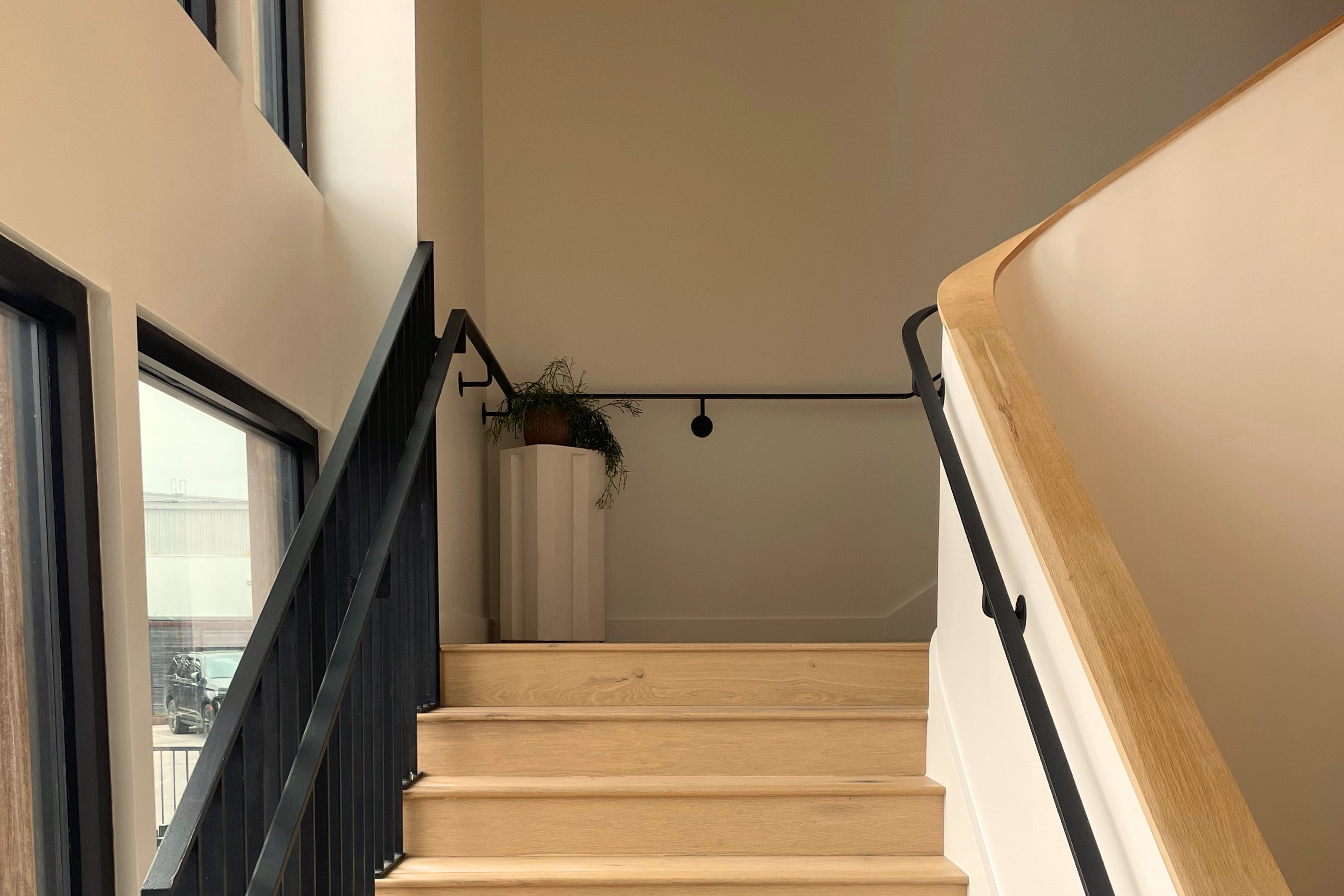Depression Therapy in Austin, TX


More than 80,000 Austinites live with depression. Our dedicated team of Austin therapists can help.
The most common symptom of depression is a consistently low mood and a sense of hopelessness. Overcoming depression starts with taking that first step towards getting professional help. At Williamsburg Therapy Group, we know that it is not easy to open up about your struggles and get motivated to work toward a solution.
Our experienced doctoral-level therapists will work with you to interact with the world in a more positive way through our depression therapy in Austin, TX. And our client coordinators are here to help match you with your ideal depression therapist, ensuring that your mental health is under the best possible care.
What is Depression?
While occasionally feeling sad is a normal part of life, these feelings can cross the threshold and become depression. If you notice that sadness develops into feelings of worthlessness, helplessness, and hopelessness or stops you from leading a fulfilling life, you may be dealing with a more serious issue. Depression is a medical condition that can get worse without proper treatment. Some common symptoms of depression are:
-
Slowed thinking
-
Feelings of hopelessness
-
Headaches or back pain
-
Feelings of worthlessness
-
Thoughts of suicide, harming oneself, or death

Causes of Depression
Many different circumstances or traumas can cause depression, as can genetic factors. While there is no one distinct cause, the root cause of most depression is thought to be caused by an imbalance of chemicals in the brain. Different types of depression vary in their symptoms as well, with chronic clinical depression typically being the most severe.
Some external factors that can contribute to depression include:
-
Abuse: When someone is abused sexually, emotionally, or physically, their chance of becoming depressed increases.
-
Medications: Certain medications, particularly allergy medication, anxiety medication, and hormonal birth control have depression listed as a possible side effect.
-
Trauma or Loss: Circumstantial depression can arise after the death of a loved one, infidelity in a marriage, or other traumatic life events.
-
Chronic Illness: Long-term, severe physical illness, such as cancer or arthritis, can lead to depression.
-
Substance Abuse: Excessive or uncontrolled substance abuse increases your risk of developing depression.
- Life Circumstances: Every Austinite knows what its like to be caught in a rut. For some, these periods of time can be more severe and prolonged.
- Genetics: Some people are genetically predisposed to clinical depression. Treatment can help these patients as well.

The most challenging part of overcoming depression in Austin can be taking that first step toward getting professional help. At Williamsburg Therapy Group, we know that it is not easy to open up about your struggles and get motivated to work toward a solution. Our experienced psychologists will work with you to interact with the world in a more positive way.
At Williamsburg Therapy Group, our client coordinator matches you with your ideal depression therapist, ensuring that your mental health is under the best possible care.
What Is Depression?
While occasionally feeling sad is a normal part of life, these feelings can cross the threshold and become depression. If you notice that sadness develops into feelings of worthlessness, helplessness, and hopelessness or stops you from leading a fulfilling life, you may be dealing with a more serious issue.
Depression is a medical condition that can get worse without proper treatment. Some common symptoms of depression are:
- Slowed thinking
- Feelings of hopelessness
- Anxiety
- Headaches or back pain
- Feelings of worthlessness
- Sleep disturbances
- Thoughts of suicide, harming oneself, death
There are many ways to treat depression that have been shown to work. These treatments include both therapeutic and pharmaceutical solutions.
The right combination of treatments for a depression diagnosis will depend on your own unique biology, symptoms, and experiences. However, the first step to feeling better is getting professional help from a depression therapist.
Causes of Depression
Many different circumstances or traumas can cause depression, as can genetic factors. While there is no one distinct cause, the root cause of most depression is thought to be caused by an imbalance of chemicals in the brain.
Some external factors that can contribute to depression include:
- Abuse: When someone is abused sexually, emotionally, or physically, their chance of becoming depressed increases
- Medications: Certain medications, particularly allergy medication, anxiety medication, and hormonal birth control have depression listed as a possible side effect
- Trauma or Loss: Circumstantial depression can arise after the death of a loved one, infidelity in a marriage, or other traumatic life events
- Chronic Illness: Long-term, severe physical illness, such as cancer or arthritis, can lead to depression.
- Substance Abuse: Excessive or uncontrolled usage of substances increases your risk of developing depression.
Different types of depression vary in their symptoms as well, with chronic clinical depression typically being the most severe.
How To Know If You Are Depressed
The short answer is that if you aren't feeling like yourself, you should reach out to a doctor or licensed professional counselor.
Depression manifests in completely different ways across the population, but some of the most commonly reported symptoms include:
- Hopelessness: Depression often removes the patient's ability to see a way out or hope for a better future.
- Fatigue: While fatigue can have any one of thousands of causes, depression is one of them. Depressive fatigue is often paired with a general sense of emptiness and difficulty concentrating.
- Indifference: Patients with depression often feel nothing, rather than only feel sad. Those with depression often quit habits or have marital problems because of a general indifference.
- Irritability: Particularly in men, depression can present as irritability or mood swings.
- Anxiety: Anxiety and depression can affect people in similar ways and often present together.
How Therapy Helps With Depression
An experienced psychologist or depression therapist can help you gain a greater understanding of your feelings and teach you healthy ways to respond to them.
Psychotherapy can help you deal with depression by teaching you to:
- Understand the behaviors, emotions, and ideas that contribute to your depressed state.
- Understand and identify the life problems or events that contribute to your depression and help you understand which aspects of those problems you can solve or improve.
- Regain a sense of control and pleasure in life.
- Learn coping techniques and problem-solving skills.
Many offices that offer depression counseling, like Williamsburg Depression Therapy Austin, offer many different types of depression counseling to fit the changing needs of patients.
Types Of Therapy For Depression
Several different psychotherapies have been shown to help individuals recover from depression. The most common form of therapy used to treat mild to moderate depression is cognitive behavioral therapy (CBT).
Cognitive Behavioral Therapy
When administered by a depression therapist, CBT teaches you to identify and manage negative thoughts and behaviors. A CBT therapist can help you recognize negative thoughts, change false beliefs, and stop doing things that hurt you.
Interpersonal Therapy (IPT)
Another common psychotherapy used in depression counseling is interpersonal therapy (IPT). This is especially useful in treating depression related to situations and relationships like the loss of a loved one or major life changes.
Interpersonal therapy focuses on the interactions a person has with their family and friends. The primary goal of interpersonal therapy is to improve communication skills and increase self-esteem.
Dialectical Behavior Therapy for Depression
Similar to CBT, dialectical behavior therapy, or DBT, is a form of individual therapy specifically designed for those with an enhanced emotional response. DBT essentially works the same way as CBT but with a heavier focus on social and emotional interactions.
DBT can be more helpful for people with extreme or unpredictable emotions that can make them act in harmful ways.
Williamsburg Therapy Group's therapists work closely with each patient to create a personalized treatment plan that meets their specific needs. Patients can learn how to deal with stress and deal with the symptoms of depression with the help of psychotherapy.
Depression Therapists in Austin, TX, Ready to Help You
Williamsburg Therapy Group prides itself on our top talent: doctoral-level psychologists with decades of experience analyzing, guiding, and improving the thoughts and emotions of our patients.
Our depression therapists in Austin, TX, maintain a high level of availability, so your next appointment can be as convenient as possible.
Our Austin Therapy Space
Other areas of expertise.
Feeling better is closer than you may think.
We are here to help you no matter where you are emotionally. We will match you with a professional that cares and can help.



